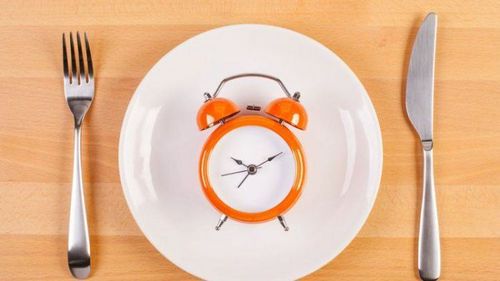This is an automatically translated article.
1 How many meals a day should be eaten is a question many people are interested in. For the average person, you can choose to eat 3 main meals or divide them into many small meals. For people with diabetes, you should divide them into many small meals. It is important to eat healthy meals, minimizing fast food and processed foods.
1. How many meals should you eat a day?
1 How many meals a day to eat depends on the health status of each person. The general advice is that people should eat a healthy breakfast, split meals in case of diabetes.
For healthy people, you can choose to eat 3 main meals or split meals during the day, as long as the dishes are healthy. This did not significantly affect the metabolic rate.
People who lose weight should consider choosing an intermittent fasting diet, which has been shown by many studies to lower blood sugar, increase insulin sensitivity, and decrease blood insulin levels.
2. Do small meals increase metabolic rate?
Metabolic rate is the number of calories the body burns in a given period of time. Eating small meals does not increase metabolic rate. During the digestion of food, the total amount of food consumed determines the amount of energy expended. For example, eating three 800-calorie meals produces the same amount of energy expended in the digestion of food as eating six 400-calorie meals.
Many studies have compared eating small to large meals and concluded that there is no significant effect on metabolic rate or total fat loss.
3. Do small meals help balance blood sugar and reduce cravings?
Eating 3 main meals a day can cause blood sugar to spike and drop suddenly, while breaking up into smaller meals will help stabilize blood sugar throughout the day. Sudden high blood sugar levels are the cause of many complications of diabetes.
Smaller meals have also been shown to improve satiety and reduce hunger more than eating large meals. Several studies have shown that breakfast plays an important role in controlling blood sugar in people with diabetes. Eating the biggest meal of the day in the morning can help lower average daily blood sugar levels.

1 ngày ăn mấy bữa là băn khoăn của nhiều người bệnh bị huyết áp
4. Should I eat breakfast or not?
How many meals should I eat a day? Should I eat breakfast or not? Many people wonder. In fact, eating breakfast helps kickstart your metabolism for the day and lose weight. Studies show that people who skip breakfast are more likely to be obese than those who eat breakfast. However, this data does not prove that eating breakfast can help with weight loss. This is most likely because breakfast skippers in general tend to be less health-conscious.
Blood sugar is better controlled in the morning. Therefore, eating a high-calorie breakfast can help maintain blood sugar levels lower than eating a high-calorie dinner. Additionally, one study in people with type 2 diabetes found that fasting until noon increased blood sugar levels after lunch and dinner. Accordingly, people with diabetes or concerns about blood sugar should consider eating a healthy breakfast.
General advice: If you're not hungry in the morning, skip breakfast. Just make sure to eat healthy for the rest of the day.
5. Occasional skipping meals is good for health
Intermittent fasting is fasting strategically at certain times, such as skipping breakfast and lunch each day or fasting twice for longer than 24 hours per week. Studies on intermittent fasting show that metabolic rate can actually increase in the first place. Only after prolonged fasting does it decrease.
Additionally, studies in both humans and animals show that intermittent fasting has various health benefits, including improved insulin sensitivity, lower blood sugar, lower insulin, and more. Intermittent fasting also induces a cellular cleansing process known as autophagy, where the body's cells get rid of accumulated waste products.
Please dial HOTLINE for more information or register for an appointment HERE. Download MyVinmec app to make appointments faster and to manage your bookings easily.
Reference source: healthline.com













